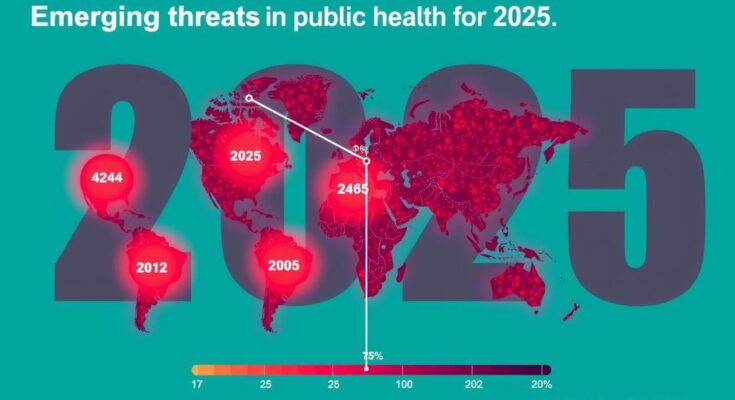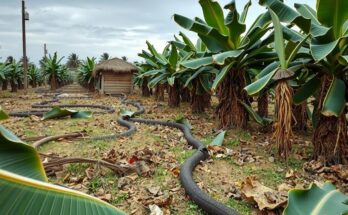The 2024 report by the UN highlights emerging pathogens as a significant threat to global health, with warnings of a potential pandemic by 2030. Outbreaks of diseases, including avian influenza and zoonotic infections, are rising amid concerns about antimicrobial resistance. Steps are underway for international cooperation to address these urgent public health challenges, but gaps in preparedness remain an ongoing issue.
The year 2024 has brought to light several alarming trends regarding emerging pathogens and the impending threat of potential pandemics. According to a recent United Nations Environment Programme report, the next pandemic could emerge as early as 2030, with the highly pathogenic avian influenza strain, H5N1, showing signs of being only a mutation away from human transmissibility. Reports from the World Health Organization indicate that a total of 16 different viruses and bacteria have caused global outbreaks this year, highlighting an urgent public health crisis.
Moreover, countries are grappling with a resurgence of zoonotic diseases such as cholera, mpox, marburg, and oropouche fever. Notably, the spread of Clade 1b of mpox in Africa has resulted in 50,000 cases and over 1,000 fatalities since its identification in September 2023. Consequently, in August 2024, the World Health Organization declared a public health emergency of international concern.
In Latin America, vector-borne diseases such as dengue and chikungunya have proliferated in new regions, with Brazil reporting over 6 million suspected dengue cases—the highest recorded to date. The spread of these diseases has been accelerated by environmental factors, particularly increased precipitation and temperature that benefit the insect populations responsible for transmission.
In North America, an outbreak of H5N1 influenza has been detected in 16 states following its infection of dairy cows, with at least 65 human cases reported by year-end. As the world contends with these emerging health challenges, antimicrobial resistance (AMR) continues to rise, indicated by the UN’s recent approval of a political declaration aiming to reduce deaths linked to AMR by 10 percent annually by 2030.
The report further stresses that human activities such as deforestation, unsustainable agriculture, and urbanization are exacerbating the risk of zoonotic spillover—a concern amplified by climate change. Without more effective international cooperation and preparedness, the scars from the COVID-19 pandemic may be overshadowed by what could be an even greater public health crisis on the horizon.
The discussion surrounding emerging pathogens is critical, particularly in the context of recent and ongoing global health crises. The UN Environment Programme’s report highlights the precarious balance between human activity and disease emergence. As the world grapples with the remnants of the COVID-19 pandemic, the rise of zoonotic diseases jeopardizes public health and stresses the healthcare infrastructure globally. Understanding the interplay between environmental changes and disease spread is essential for developing proactive measures against future pandemics. With the WHO’s ongoing negotiations for a Pandemic Prevention, Preparedness, and Response treaty, there remains a focus on collaborative efforts among nations, even though significant gaps persist. The interplay of ecological factors, human health, and preventive measures continues to be a crucial area of concern for health professionals and policymakers alike.
In summary, the developments of 2024 underscore an urgent need for heightened awareness and proactive measures against emerging infectious diseases. With the specter of potential pandemics lurking, it is vital for global health organizations and governments to strengthen their collaborative efforts. The rising incidence of zoonotic diseases, antimicrobial resistance, and environmental changes call for an integrated approach to health that considers not only immediate responses but also long-term preventative strategies. Failure to act decisively may result in severe public health crises in the not-so-distant future.
Original Source: www.downtoearth.org.in




